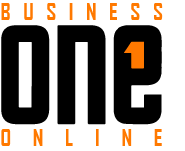Businesses may enhance performance and implement essential adjustments to succeed by hiring a consultant.
- Business consultants assist businesses in overcoming obstacles, boosting sales, and expanding.
- Working with business advisors that have accomplishments and experience with businesses similar to yours is crucial.
- Business consultants may need daily or monthly retainers in addition to project- or hourly fees.
- This post is for company owners who are thinking about hiring a business consultant.
The sheer amount of work required to run a small or medium firm makes it difficult. For company owners, doing everything alone is almost difficult, from accounting to human resources to technological assistance. But they don’t have to figure everything out on their own since it’s so simple to hire consultants. We’ll discuss the duties of a business consultant and how hiring one might benefit your company.
A business consultant is what?
An expert with a broad range of talents, a business consultant helps entrepreneurs in their pursuits. A consultant’s education and prior experience have given them expertise.
Business consultants also provide management consulting to aid firms in enhancing their effectiveness and performance. These experts conduct analyses of businesses and provide solutions that assist them in achieving their objectives.
When they want assistance, insight into their chosen course of action, or a catalyst for change inside their organizations, company owners should think about employing business consultants.
Why use a business advisor?
Business owners might consider hiring consultants for a number of reasons. The following are just a few of the many services that consultants provide:
- delivering knowledge in a certain market
- Recognizing issues
- adding to the current workforce implementing change
- Providing impartiality
- instructing and preparing workers
- carrying out the “dirty task,” such as firing employees
- restoring a business
- starting a new company
- influencing others
- including via lobbying
What is the role of a business consultant?
The process of a business consultant typically consists of three stages: discovery, assessment, and execution.
1. Finding
Any business consultant will start by learning as much as they can about your company during the exploration phase. A excellent business consultant takes the time to interview the owner and staff to understand as much as they can about the company. The advisor will carry out the following actions:
- Observe your spaces.
- meet with the staff and the board of directors.
- Study the financials of your business.
- Read all corporate documentation.
The business consultant will learn more about the specifics of your company’s goal and ongoing activities during the exploration phase.
2. Analysis
The business consultant moves into the assessment phase after gaining a thorough grasp of your organization with the aim of determining where change is required. This step entails determining the advantages and disadvantages of your business as well as any present or future issues.
- Analysis of current issues and discovery of new issues: The consultant should research issues that the owners and management have previously recognized. Consultants are objective, which allows them to identify unanticipated or novel problems.
- Getting answers: A business consultant should plan solutions to the issues they uncover and lay out strategies for seizing chances to expand the company, raise profitability, and improve efficiency. Consider a scenario in which your business has a good sales department but a subpar marketing department. This is a chance to expand your marketing capabilities and make the most of your sales team.
Throughout this process, communication and feedback are two essential components that must be prioritized.
- Communication: Your whole team must keep lines of communication with the consultant throughout the review period open and clear.
- Feedback: The business consultant’s suggestions should be seen as constructive criticism by you and your team members. The consultant’s criticism is not intended to be individualized. Although you and your staff are intimately familiar with the company, a lack of a broad perspective might obstruct development and constructive transformation. The consultant gives impartiality and a new perspective. Naturally, you should share your own insights and thoughts with the business consultant, but be open to other perspectives as well.
3. The actualization
The third phase, often known as the restructuring stage or plan execution, should begin after your business and the consultant have reached agreement on a strategy. The consultant strengthens your existing assets and gets rid of liabilities throughout this phase. They also keep an eye on the plan’s development and modify it as necessary.
Business consultants’ types
Business consultants come in a variety of forms and focus on various business areas.
Consultants for strategy and management
Business consultants with experience in strategy and management may help your company grow, seize new opportunities, and increase income.
The following are things that consultants that specialize in strategy and management may assist your company with:
- Increase sales in your present market or diversify into other ones.
- Restructure your company’s structure to develop a plan that is economical.
- Increase the capabilities of your company.
- purchase a fresh business endeavor.
- Change the way your company is structured or merge with another company.
- Act as middle management at a time of change.
Operational advisors
You may enhance routine procedures with the aid of business experts that specialize in operations. These business consultants analyze your present company strategy to determine how to get the same high-quality outcomes more quickly and affordably. These experts also aid in quality assurance and know how to adjust and improve your output for better outcomes.
Financial advisors
You may get a more comprehensive picture of your company’s financial situation from a financial consultant. They primarily support investment choices and guide you in determining how to manage the assets and debts of your company. Financial planning, daily expenditure guidance, and the finest retirement plans are just a few of the many specialties that financial advisors may have.
Human resources advisors
You may get help with your HR tasks from the top HR outsourcing businesses and individual HR freelancers. These consultants can handle all of your regular HR duties, including hiring and firing staff members, processing payroll, doing office work, and tracking employee performance.
Marketing advisors
Marketing consultants assist companies in identifying their brand’s advantages and capitalizing on them to increase visibility and brand recognition. An asset in extending your company’s reach is a marketing consultant, whether your company need a new logo or social media strategy.
How about consulting companies?
For your consulting requirements, you have the option of hiring an individual specialist or a specialized company. A local company could be more suitable for a small business’s requirements and budget than large companies like McKinsey & Co. and BCG.
Start by doing a Google search for your problem and your region, such as “Seattle brand strategy company,” then go through the results. The search will probably turn up companies you’ve never heard of, but you can see whether they’d be a good fit by taking a closer look at their work and customer testimonials. A local company also increases your chances of discovering someone on their customer list that you know or have already run across.
Following are some advantages of a consulting firm:
- abundant resources
- knowledge of several experts
- a well-known company with a large number of references
Here are some advantages of hiring lone consultants:
- Affordability
- Flexibility in location and timing
- the capacity to give your case their entire attention
Depending on your company requirements and preferred working method, you should decide whether to hire a consulting firm or an individual.
How to choose a business advisor
It might be challenging to choose a business consultant who meets your company’s demands. It’s crucial to know where to start and take things one step at a time, whether you’re seeking for someone to assist with your high-level strategic demands or a specialized, problem-solving expert to boost your SEO or product-sourcing operations.
1. Select a qualified business consultant.
The hardest element for the owner or management may be choosing the correct business consultant. The consultant should be passionate about their profession, strive for quality, and have an attention to detail and organization. Finding a consultant with experience in your sector or knowledge of the kind of issues your company experiences is crucial.
- Make use of your current network. Utilize your current network as a starting point for your quest for a business consultant. Generic evaluations or praises are often less trustworthy than a referral from a coworker, partner, or other company owner who was in a comparable situation. Find out from your connections whether they are aware of any subject-matter specialists who can help you with your particular issue.
- Investigate specialized markets. Investigate specialist markets that may assist you in locating experts by area, subject, and budget. Popular websites include Business Talent Group, Graphite, and Catalant. Don’t be afraid to use LinkedIn and other social media networks. A prospective consultant’s skill is often best shown by a large number of suggestions. Look carefully at the top results after doing a search for terms associated with your problem.
- Search freelance websites: Consider checking through well-known freelancing websites like Upwork, Dribble, Fiverr, and Freelancer if you’re seeking for a specialized expert. Take note of a possible consultant’s reputation, amount of participation, and customer testimonials.
2. Investigate any prospective business consultants.
- Pose inquiries. Ask specific questions about your colleague’s experience, the consultant’s methodology, and—most importantly—the outcomes of their consulting work if you depend on a personal referral. Your coworkers might provide you with a unique perspective on the long-term effects of adopting the consultant’s suggestions rather than simply their immediate benefits.
- Find out the history and credentials of the consultant. Examine the consultant’s résumé, school history, and industry-specific credentials. If they are eager to investigate new learning possibilities and keep their abilities current, that’s a positive indicator.
- Inquire about the consultant’s practical experience. Practical knowledge is important in the corporate sector. Do they know anything more than you if they are a consultant who just graduated from college? Take into account seeking for advisors who have effectively owned or managed small firms, large corporations, or certain divisions.
- Make sure their background relates to your industry. Even while a former bank CEO may appear impressive, do they have the skills and background necessary to make your cupcake shop a successful small business? They may, but if your company is also looking at a former restaurant owner who now earns a livelihood effectively assisting small restaurants develop, this consultant might be a better fit. Look for consultants that have experience with organizations that share your industry’s style, size, demands, and objectives.
- Observe their website. Additionally, you want to examine the consultant’s resources and website. Look for expert photos and well-supported information about their offerings, and carefully go through the contracts and consulting costs.
- Check out their background in consulting. You want a consultant who has succeeded with businesses similar to yours, not simply one with the necessary experience. Request references and ask for the consultant’s portfolio or list of the companies they have worked with. Find a consultant that has experience growing businesses that are very similar to yours or helping businesses overcome the sorts of issues you are, then get in touch with those firms to ask whether they were happy with the consultant’s services.
3. Determine if they are the best consultant for the position.
Meet with a possible consultant if their references are strong and they have a track record of being dependable and successful to make sure they are the correct fit. Outline your concerns and expectations in detail, and then decide if you are at ease with their demeanor and manner. If the consultant fulfills all of your requirements, it could be time to proceed.
Creating a contract or agreement for a business consultant
It’s time to ratify the agreement after you’ve identified a top-notch consultant, done your research and due diligence, obtained positive and verifiable references, thoroughly stated your pain areas and expectations, and made sure you feel comfortable with their style and attitude.
Normally, contracts or agreements with consultants are made for three to six months with the possibility of extension. The names of the responsible parties, consultation criteria, pricing structures, payment schedules, stated deliverables, and set dates are common features included in agreements.
A clear and agreed-upon timeframe gives your consultant the time they need to provide the outcomes they have promised while encouraging timely development.
How is the performance of a business consultant evaluated?
Although there isn’t a generally used, impartial process for evaluating consultant performance, it is appropriate to create objectives and track deliverables. This method is comparable to Peter Drucker’s management by goals strategy and SMART employee management ideas.
- Set quantifiable, crystal-clear goals. Make sure you and your consultant set clear goals at the outset of your engagement that are as precise, quantifiable, attainable, relevant, and time-oriented (SMART) as possible.
- Decide on the observable outcomes you want. Decide on the financial and other quantifiable goals you want to achieve, such as more sales, yearly savings, or lower staff turnover.
- Choose the intangible outcomes you want. Make sure the consultant is aware of the intangible outcomes you want, such as increased morale, effective application of corporate values, and greater client satisfaction.
- At each stage, evaluate your development. At each stage of your partnership, track the advancement of your goals.
- Analyze KPIs. After your consultant has completed their job, evaluate the key performance indicators (KPIs) that were defined.
- Use a survey to hire a consultant. At the beginning of the project, a consultant may present a thorough questionnaire that covers the complete company environment and intended areas for development, and they can then provide the same set of questions at the conclusion. This will make it simple for you to compare the outcomes, particularly when it comes to intangibles.
Answering the following questions may help you assess the consultant’s performance:
- The KPIs were they delivered on time and met?
- Was the collaborative process easy, and was the consultant available and supportive at all times?
- Did they provide you the knowledge and tools you needed to develop your business?
- What are the immediate, long-term, and overall effects of their work?
- How much did the advisory services cost you in return?
FAQs for business consultants
What are the fees for business consultants?
The typical annual wage for a management consultant in 2020 was $87,660, or $42.14 per hour, according to the Bureau of Labor Statistics. However, consulting fees are often more expensive to compensate corporate costs.
Not all consultants charge by the hour. These are some common fee structures and the percentages of consultants that prefer them, per Consulting Success research on consultant fees:
- 31% – each project
- 24% – Daily
- 15% – of the monthly retainer
- 13% – daily rate
- 17% – Based on value and ROI
Although some earn more than $100,000 each job, the survey found that 40.5% of consultants earned up to $5,000 every assignment. The cost of the project will be determined by its size, scope, and duration.
Although business consultants are expensive, their advice and preparation may help you grow your company and enhance earnings while removing obstacles and spotting chances to assure future success.
How can you gauge a business consultant’s return on investment?
By looking at a few key measures, you may evaluate the consultant’s performance and calculate ROI. The majority of businesses examine their net earnings in the quarter before to employing a business consultant, and then reevaluate them in the following quarter or two after putting the consultant’s advice into practice. Before computing the ROI, you should subtract the consulting fee.
When employing a business consultant, ROI must be taken into account. If you’re spending more than $5,000 on a business consultant, you want to see a proven return on investment following the project. Established business consultants should be able to provide potential customers with their prior ROI statistics.
According to The Predictive Index, 27% of polled organizations decided against hiring consultants since they couldn’t show a return on investment. This is the most common excuse given by businesses for not hiring consulting services, and it is the consultant’s responsibility to utilize big data to show previous ROI. [Learn more about small company big data solutions.]
How should a business consultant’s budget be set?
The cost of hiring a consultant may be high. It’s crucial to create a realistic and fair budget since fees differ. Consider allocating a defined portion of your overall sales as the consultant’s fee. For instance, it would not be a good idea to pay a $5,000 monthly consultant fee, which represents 50% of your revenues, if your monthly sales are $10,000. More logically, a 5% charge on $100,000 in income.
By establishing distinct stages for your consulting project, you may lower costs and risks by gauging how well each step is going. For instance, if you use the consultant’s marketing know-how to launch a number of items, you may assess their performance after the first launch and perhaps use the same approach for the remainder of your product line without having their ongoing services.
As part of a free consultation, many experts will be able to help you determine the size and scope of your project. This conversation may also help you get a feel for the consultant and decide whether they’re a suitable fit for your company’s requirements.
Do you need to hire a virtual consultant?
Determine if the work has to be done on-site or whether it can be done remotely when determining your consulting project’s requirements and KPIs. By choosing a remote consultant, you may access a wider range of skills since you wouldn’t be restricted to your local market. Additionally, it may guarantee flexibility and lower the cost of the consultant.
Remote arrangements for specialized personnel, particularly in the digital sphere, may be advantageous to both parties provided they are well-defined. However, certain consulting tasks call for working directly with your team and are best accomplished in person.
What typical blunders should you stay away from while dealing with a business consultant?
Making a number of typical errors might keep you from succeeding in your engagement with a business consultant.
- Automatically selecting the consultant with the highest experience or accolades: When picking a consultant, it’s important to consider their track record, endorsements, and credentials, but it’s even more important to make sure their expertise is relevant to your sector and business case. Make sure the expert you choose is up to speed on all pertinent trends, technologies, and techniques.
- A jack-of-all-trades hire A consultant or consulting business: that professes to “know it all” may not have the specialized knowledge or abilities you need. Find a consultant that specializes in your area, has a ton of experience, and can help you with your unique requirements.
- Considering a consultant to be an employee: It’s crucial to treat your consultants equally, taking into consideration their working preferences, current workload, and timetable. They may not be willing to take on tasks that are beyond their stated scope or be unavailable right away. They may not want to work extra, and they won’t be completely familiar with how your business is run. They aren’t there to join your team; they’re there to provide you advice and help your company operations. Actually, the reason consultants are so helpful is because of their outside viewpoint.
- Ignoring the suggested course of action: The consultant’s role is to lay out a plan and position you for success; nevertheless, it is up to you and your team to execute the suggestions and bring about change. You won’t realize the benefit of hiring a business consultant if you’re not prepared to “walk the walk” after the consulting job is over.
- Treating the consultant’s advice as gospel truth: Even if you are paying for and depending on your consultant’s knowledge, it is important to consider your own experience, use common sense, and see their recommendations as useful guidelines rather than strict restrictions. Don’t be hesitant to challenge their advice. You are the one who will have to cope with the long-term effects of the consultant’s advice since you are the one who knows your company the best.
How do you decide when to engage a business expert?
There isn’t a one-size-fits-all approach to hiring a business consultant. You must assess your business in three crucial areas:
- people resources
- Financial planning
- Operations
- Regulations and conformity
- financial preparation
Look for a business consultant who is a recognized authority if your company is having trouble in any of these areas. Another indication that it’s time to employ a business consultant is if you see any losses in earnings that you are unable to explain. A consultant may identify probable causes of the fall and provide solutions.







